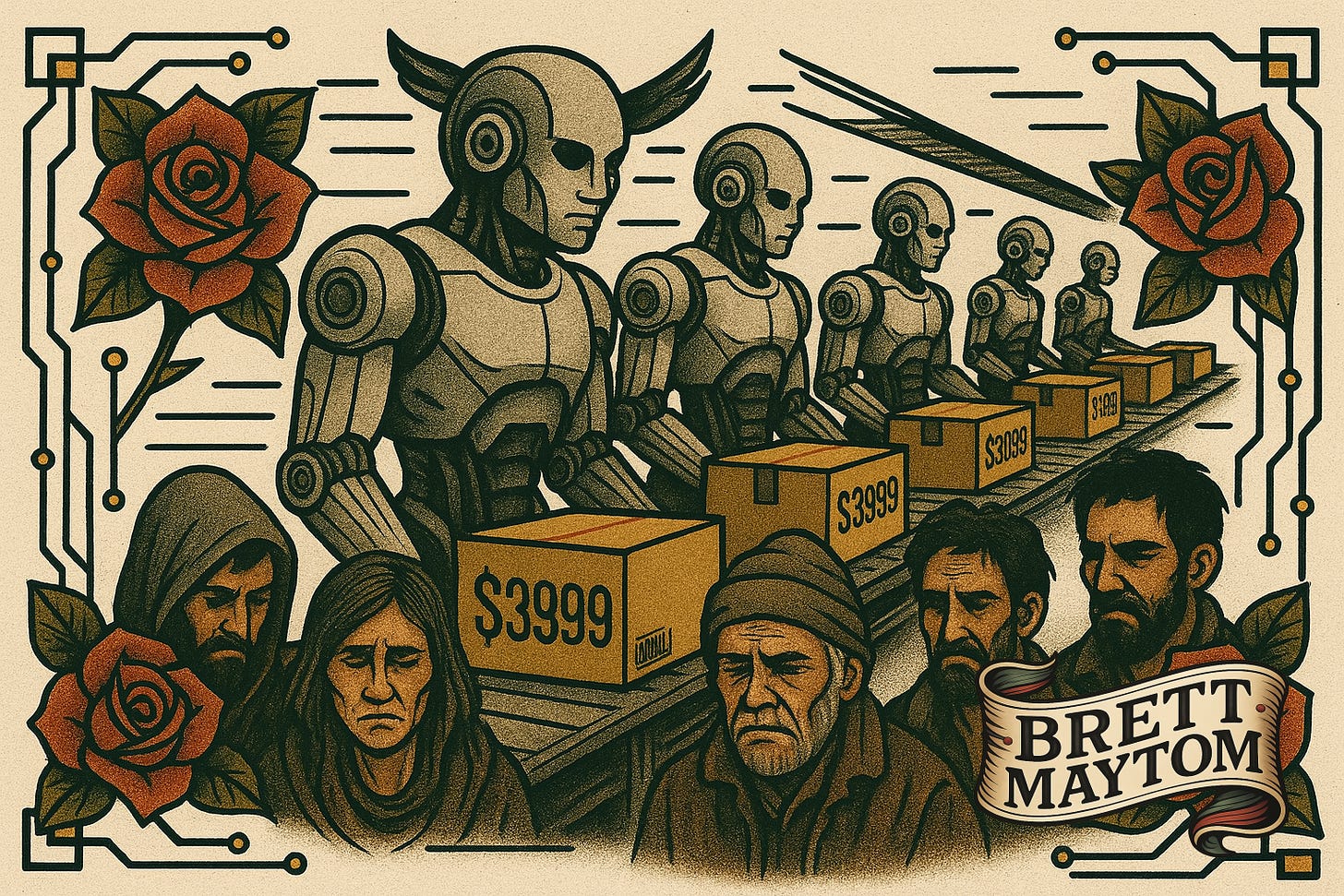The Future Is Efficient… and Empty
What happens when AI takes over, and humans are no longer needed and are unable to afford what it produces?
No matter what your company does, who it sells to, or how many layers sit between you and the market, you're still serving a human at end of the chain. Always!
You might be building backend systems for logistics.
You might work in compliance for a global supplier.
Maybe you run infrastructure buried deep in someone else’s supply chain.
It doesn’t matter. Because at the very end of that long chain of B2B, contracts, systems and transactions, there’s a real person. A real human. Someone using the thing. Feeling the outcome. Living with the result. That real person is paying for it directly or indirectly.
And if you’ve lost sight of that person, you’ve lost the plot.
There’s a lot of hype around AI taking jobs. Optimising industries. Automating roles. Scaling productivity.
Okay. Let’s pretend it happens. Let’s say most people are out of work because AI has taken over.
What then?
All those people with no jobs will have no income. No income means no spending. No income also no taxes. They won’t be able to buy your product, use your service, or take part in the economy at all. The consumer facing businesses will collapse first, and that will trigger the entire supply chain to collapse too.
But that’s not even the full story.
If billions of people are left out, it’s not just business that breaks. Society starts to break. Inequality grows. Trust collapses. Unrest spreads. It affects everything from healthcare to education to democracy itself.
You might end up with the perfect machine.
Efficient. Scalable. Flawless.
But in the end, you’ll have built it for no one.
Think about it!


Imagine an insurance company decides to use AI to do most of the work. It’s fast, efficient, and cheap. So they let go of a lot of their staff.
Now that they have fewer people, they don’t need as many outside services. That includes things like office supplies, cleaners, IT contractors, and marketing agencies. So those other businesses lose income too, and they start letting people go or turning to AI themselves.
That means even more people are out of work.
And here’s the catch. People who don’t have jobs don’t have money. And if they don’t have money, they’re not buying insurance. They’re just trying to survive.
So the insurance company starts losing customers. Their revenue drops. They then let even more people go. The cycle keeps going.
Eventually, there aren’t enough paying customers left to support the business. The company keeps shrinking until it finally closes its doors.
In trying to make things more efficient, they ended up wiping out the very people they depended on.